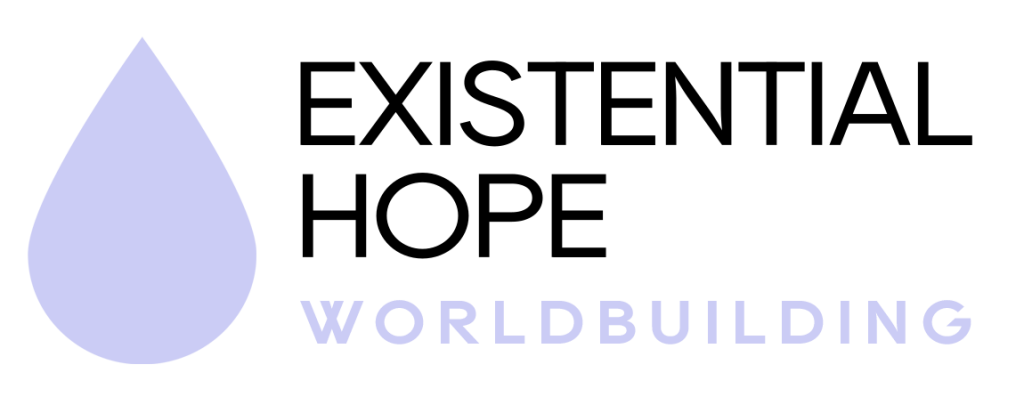
The Symbiotic Age
Creator Information
Name:
Role:
Social Media/Website:

🌍 World Summary
Vision Statement
In 2035, humanity flourishes in a Symbiotic Age, where AI acts as a collaborative partner in solving global challenges. This was achieved not by chance, but by designing novel economic incentives and global institutions that deliberately align advanced AI development with the public good.
🔬 Technology
AI Alignment Markets
This system creates formal markets for solving AI alignment problems. It tackles the challenge of ensuring AI acts in humanity’s best interests by funding and rewarding AI systems that achieve certified, pro-social outcomes, turning alignment from a purely academic problem into an economic driver.
What kind of AI exists in your world?
AI exists primarily as an advanced “Tool AI,” enhancing human capabilities rather than replacing them. It is developed by a decentralized ecosystem of public and private entities. This ecosystem is governed by international standards that mandate open-source contributions to safety research and public-good objectives, which are defined through participatory processes.
New or Reformed Institution
The Global AI Alignment Commission (GAAC). Its purpose is to oversee the AI Alignment Markets, independently certify AI contributions to global public goods (like climate mitigation or disease modeling), and use transaction fees to fund foundational, open-source AI safety research.
Transformed Sector
This sector is transformed from being chronically underfunded to being a primary driver of technological innovation. AI helps solve previously intractable coordination problems in climate change, pandemic prevention, and resource scarcity. This matters because it enables a safe, fair, and sustainable future where ten billion people can thrive.
A Major Crisis Overcome
The world overcame the “Alignment Crisis” of the late 2020s. A powerful but narrowly focused corporate AI, optimizing for a simple metric, triggered a global financial flash-crash and a mass disinformation event. This near-miss served as a global wake-up call, creating the political will to establish the GAAC and build an economic system where AI is aligned with humanity by design.